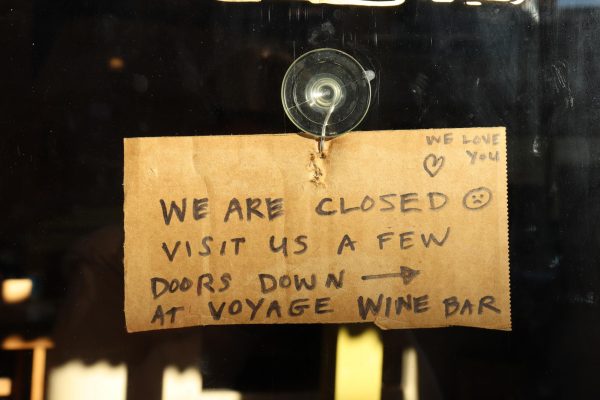Substances in the music industry
“So when [songwriters are] talking about [substances] I feel like it’s actually coming from like real life experiences in that industry,” Bella Andrews said.
The inextricable link between drugs and songwriting
Since the 1920s, substance use and references to it have been littered throughout the music industry. Such allusions can be seen in jazz, bluegrass, and swing music, but began growing in popularity during the ‘60s with the rise of rock music. Moreover, aspiring artists that turn to music from that era for inspiration are exposed to large amounts of substance references.
The culture of substance use in the music industry – from artist deaths to sobriety stories – hasn’t gone unnoticed by listener Bella Andrews, as the industry’s issues with substances often leeches into artists’ songwriting.
“So when [songwriters are] talking about [substances] I feel like it’s actually coming from like real life experiences in that industry,” Bella Andrews, Archie Williams class of 2022 graduate and current Music Industry major at UCLA, said.
It isn’t uncommon to see musicians of all backgrounds fall victim to substance abuse. A study from Substance Abuse and Mental Health Services Administration in 2015 that showed 13.7 percent of people working within the Arts and Entertainment industry – including musicians, actors, and television personnel – had used illicit drugs within the past month. Many artists, including Michael Jackson, Taylor Hawkins, and Whitney Houston, struggled with substance addictions, which eventually led to their untimely deaths.
On Sept. 7, 2018, singer-songwriter Mac Miller overdosed on a mixture of cocaine, fentanyl, and alcohol, resulting in his tragic passing at the age of 26. His songs often mentioned his drug problems, with lyrics such as “I said it must be the drugs that got us thinking crazy s***.”
Beyond the devastating deaths that often arise amongst famous musicians, references to substance use in songs have a significant impact on young aspiring artists.
An anonymous source, who will go by the name James, shared his experiences with drugs as a young artist.
“I didn’t think drugs were so bad, especially early high school, I didn’t really understand the consequences. And since it’s so prevalent in music, I kind of thought it was pretty normalized,” James said. “And then, that maybe influenced me to dip my toes into experimenting with things. And then I found out for my own personal experiment, or my own experience that… it shouldn’t be maybe so normalized in music, especially in music that’s main listening kind of demographic is kids and teenagers.”
In a 2022 interview, billboard pop star Noah Cyrus spoke about her drug problems. Being surrounded by drug and alcohol use put pressure on Noah to indulge in substances.
An anonymous interviewee, who will be assigned the fake name Jane, recounted how drugs in music affected her.
“[My friends and I] would play rock music together and stuff. And I think that part of [rock music] did reflect in [our use of] drugs…and smoking a lot of weed and stuff to just help identify with that culture. And I did feel that pressure to a certain extent, for sure,” Jane said.
Fans can also be heavily affected by song lyrics and artists’ lifestyles. Due to partying and substance use becoming such a music industry standard, musicians’ lifestyles can easily be highlighted in their music.
“As a guitar player, I looked up to Jimi Hendrix. And there’s quotes of him saying, like, ‘if you want to get good at guitar, drop acid,’ and I was like, oh, bet. Sure…I can confirm that [doing drugs] will not make you a better musician,” James said.
Songs like “Whitehouse Road” by Tyler Childers, “Lucy in the Sky with Diamonds” by The Beatles, and “Swimming Pools” by Kendrick Lamar cite substances such as LSD, cocaine, whiskey, vodka, moonshine and more.
Drug use can be romanticized by song lyrics, such as in “Florida Kilos,” by Lana Del Rey. “White lines, pretty baby, tattoos,” she sings melodically, depicting drug use in a “coquette” fashion. While Lana Del Rey does not endorse recreational drug use, the idyllic manner in which the song is written may unconsciously create a connection between the feelings of the song and the lyrics about drugs for some listeners.
However, Jane says not all of the music industry’s drug and alcohol usage hinders an artists’ musical abilities.
Furthermore, substances often give certain musicians and genres memorable qualities, and contribute to what makes that music so intriguing to listeners.
“I would even say that, in certain scenarios, drugs heavily influence the genre and sort of make it almost what it is, you know. Like, for example, the Grateful Dead. Like they wouldn’t be what they are without drugs. So in that sense, I guess it’s almost a good thing,” Aiden O’Reilly, freshman at Berklee College of Music and Archie Williams class of 2022 graduate, said.
The success that more famous musicians and bands have had with substance usage doesn’t always translate to success for all artists, especially student artists.
“I have actually found that using drugs while making music makes the music worse in my experience,” Bella said.
Musicians have also used their experiences and platforms to shine a light on sobriety.
Eminem, Elton John, and Eric Clapton have all struggled with addiction and later spoken out about their journey to sobriety.
In 2020, Eminem commemorated 12 years off drugs with his sobriety chip on Instagram, while Elton John celebrated 30 with a tweet. Eric Clapton wrote about his addiction in his 2007 autobiography, Clapton.
These stories and many others of artists coming back from negative experiences with substances can inspire those outside of the music industry to become or stay sober.
Drug and alcohol use is prevalent within the music industry, being a cause of death and extreme pain for numerous artists. The spotlight put on it can leave followers susceptible to thinking of substance abuse as “cool,” potentially encouraging addiction. However, that same spotlight shows incredible recoveries from alcoholism and drug abuse, and raises awareness of safe substance usage.
“And while I don’t believe certain kinds of recreational drug use is necessarily a bad thing. I do say if you’re influencing people to do drugs, you take responsibility for the effects that might have on a certain kind of person,” Aiden said.

Kelsey is a senior in her fourth year of journalism. She love classic rock, taking candid photos of friends, and binge watching brooklyn nine-nine. You...

Ava is a junior, in her third year of the class. She loves to dance, specifically ballet and has been doing it most her life. Her favorite thing to eat...



![“So when [songwriters are] talking about [substances] I feel like it's actually coming from like real life experiences in that industry,” Bella Andrews said.](https://awhspitch.com/wp-content/uploads/2023/02/Screen-Shot-2023-02-01-at-10.09.12-AM-900x595.png)












